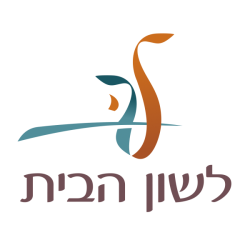Dedicated to my husband and son, Zecharia and Benyamin David

When I was 15 years old, I married my father’s brother. My father told me: “I’ll show you to your uncle. I hope you trust me and respect me”. I told my father: “But he is 10 years older than me, I am only 15 years old.” He said “don’t worry, I will have a wedding no one has ever seen, and I will bring you lots of presents. I will go to Sanaʽa and buy you jewelry”. My father told me that so I will agree to marry my uncle.
He loved me and I loved him.
Ratsaby: The groom?
David: No, my father.
Ratsaby: And you knew the groom?
David: He is family. When he made some money he’d give it to my mother. I said: “dear Lord, I will not break my father’s word”.
Unfortunately, two months after my engagement, my father became ill, and a week later he died from subaʿ (Influenza). My husband mourned his brother for a whole year.
In Yemen, the ḥenna ceremony was celebrated for one week. As part of the ceremony, they would use shazar, which is a black material used for decoration. It is used for making nagosh – a decoration of dots. After a week of celebration, at the end of Shabbat, I was taken to my husband’s home.
Ratsaby: How do they take you?
David: Part of the tradition is to have a parade of singing and drumming while walking from the bride’s home to her husband’s. It is called a zapa. My brothers and sisters walked me while drumming a drum that I still have today. I kept it as a souvenir for my children.
Ratsaby: What were you wearing?
David: Modest but nice clothes: embroidered trousers to the knees with a long dress covering me from neck down with silver filigran beads. Actually, on our way to Israel, we sold our clothes because we had nothing to eat.
Ratsaby: When you first arrived at the groom’s home and sat next to him, what did you do?
David: I was covered, all the way from my house to my husband’s. I was walked by those who escorted me. When I arrived there, they put a veil over my head, and I covered my face. Then the groom came, uncovers my veil, and kissed me. There was no one in the room but me and him. I only allowed him to uncover me after he paid me 2 pennies. That was part of the tradition. It is called ‘yichud’ (consummation). About a half an hour later, guests arrived.
Ratsaby: What did you do after the consummation?
David: We didn’t do anything.
Ratsaby: What did the others do? What did you all do when you arrived at the groom’s home?
David: The guests gave us wedding presents. And some money: a penny-a penny and a half. Sometimes even less.
After the gifts (rift in Arabic), we eat 'asit and samna, which is burgul, honey and oil.